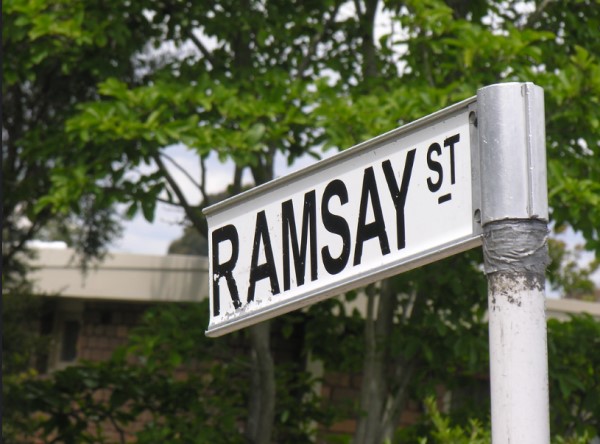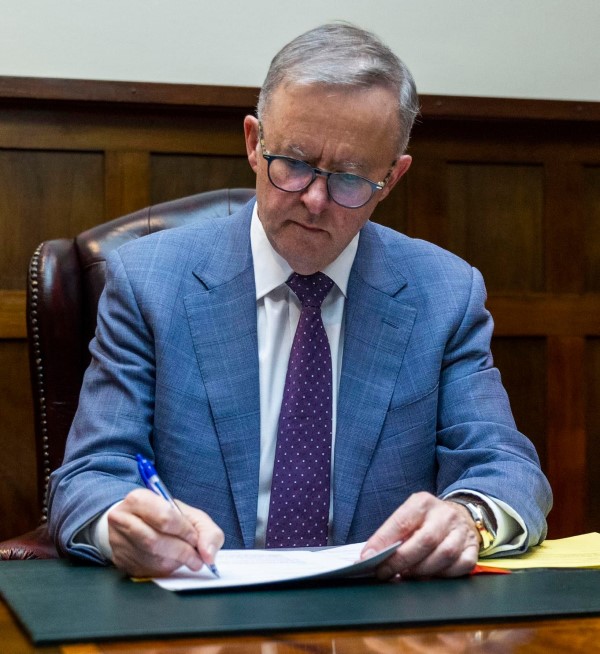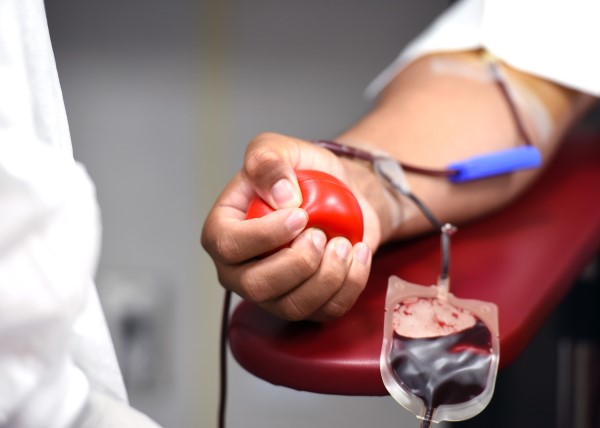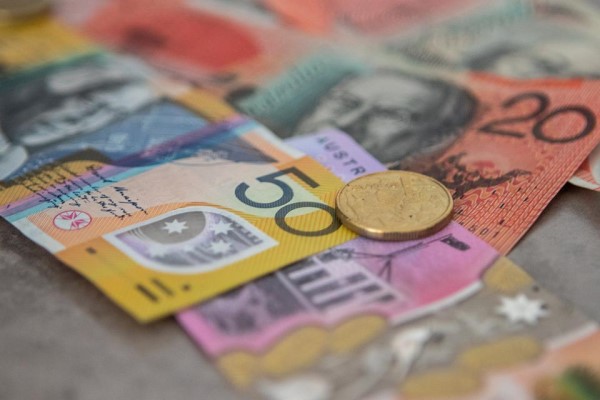Selected
- Details
- Written by Grant Broadcasters
- Category: Selected
- Hits: 134

The Logies are back for the first time since 2019, with seven TV personalities vying for the coveted Gold Logie, including comedian Tom Gleeson.
The Hard Quiz host famously won three years ago after launching a campaign ridiculing the award as well as his competition.
Gleeson has tried this strategy again in 2022, posting on Twitter that he would be embarrassed to win more than once.
"I'm not campaigning this year for the Gold Logie. Do not vote for me," he said.
The ABC presenter is up against some big names from commercial television; Hamish Blake, Julia Morris, Karl Stefanovic, Melissa Leong, Ray Meagher and Sonia Kruger.
The awards are being held on the the Gold Coast on Sunday night after a two-year hiatus due to COVID-19.
While Gold Logie campaign antics are a feature again, there have been some changes since the last time the awards were staged.
The Silver Logie for most popular presenter will be renamed the Bert Newton Award in honour of the late presenter, who died in October.
Old Moonface, as he was affectionately known, hosted the Logies 19 times and won the coveted Gold Logie in 1979, 1981, 1982 and 1984.
A new Silver Logie will also be awarded for the most popular actor in an international program.
The night will also feature a tribute to the long-running soapie Neighbours, a week after the show filmed its final scenes.
First broadcast in 1985, it was cancelled in March after nearly 9000 episodes.
The Logies will be broadcast on Channel Nine with red carpet coverage from 7pm AEST and awards presented from 7.30pm.
© AAP 2022
Image: Jodi Crisp/Flickr
- Details
- Written by Grant Broadcasters
- Category: Selected
- Hits: 108

Anthony Albanese says COVID-19 is not over, signing off on $760 million in funding to help the states and territories deal with the pandemic.
The prime minister chaired his first national cabinet meeting with state and territory leaders in Canberra on Friday, where health was a key topic.
A deal on pandemic-related funding was set to expire in September but has been extended by three months.
"It clearly isn't over yet and it would be very brave to suggest you can make that projection," Mr Albanese told reporters.
There are about 3000 Australians in hospital as a result of the virus, he said, which was why the federal government had committed to extending support until December 31.
NSW Premier Dominic Perrottet said every hospital in Australia was under pressure from COVID, so the extra funding was welcome.
Australia's most populous state reported a further 25 virus-related deaths on Saturday along with more than 8000 new cases.
Beyond the COVID response, the prime minister and premiers also agreed to look at more extensive reform of the health system.
This will include the connections between GPs and hospitals, as well as practical ways to get aged care residents and NDIS participants out of hospital and into a more appropriate setting.
Work is also under way on determining the final locations for Medicare Urgent Care Clinics promised at the federal election.
LATEST 24-HOUR COVID-19 DATA:
NSW: 8119 cases, 25 deaths, 1344 in hospital with 45 in ICU
© AAP 2022
Image: Anthony Albanese Facebook
- Details
- Written by Grant Broadcasters
- Category: Selected
- Hits: 123

Fact: more than 8.3 million Australians, or one in three, will need to receive a blood donation in their lifetime.
Yet it is something three-quarters of the nation's population are unaware of, while more than 80 per cent have little or no idea how many blood donors are actually out there.
For Red Cross branch Lifeblood, setting the record straight has become key to correcting misconceptions that may be hindering its ability to help save lives.
Its concern arises from the findings of a national survey, commissioned by data and insights company Pureprofile, aimed at encouraging more people to roll up their sleeves.
While only only three per cent of Australians donate blood, more than half the 1014 adults polled in May thought there were at least three times that many.
While wishing it were true, Lifeblood will settle for recruiting around 140,000 new donors in the short term.
"There are now more than three million extra people living in Australia than there were 10 years ago but the number of people who donate hasn't changed," executive director for donor services Cath Stone said.
"Our existing blood donors can't do it alone. Escalating cold and flu cases, COVID, busy lifestyles and all sorts of other reasons mean cancellations remain high."
The Pureprofile research also concluded nearly 69 per cent of Australians have a greater appreciation for the nation's health system than they did pre-pandemic.
And while almost 60 per cent now spend more time at or working from home than before COVID-19, two thirds want to return to a more 'normal' life, and about half want to give back and help others more.
About 70 per cent of those polled said they would be more likely to donate if they knew their blood type was in short supply.
Some 72.5 per cent indicated they would be more willing to give blood if they knew someone who needed it, while four in five agreed they would want a blood transfusion to save their own life.
More than four in 10 believe most donated blood is used for road accident and trauma patients, when the fact is that most is used in cancer treatment.
Lifeblood hopes to clock up 7000 donations for National Blood Donor Week, which finishes on Sunday.
Book a donation at www.lifeblood.com.au via the free DonateBlood App or call 13 14 95
© AAP 2022
Image: https://pixabay.com/photos/blood-blood-donation-medical-donor-5427229/ (free image)
- Details
- Written by Grant Broadcasters
- Category: Selected
- Hits: 115

The NSW government is three days away from handing down its final budget before the 2023 election with billions already promised to young families, the healthcare sector, the bush and the environment.
On Friday the government pledged a further $270 million to Sydney research facilities in a bid to make the city the world's leading biomedical research hub.
"We want to see our best scientists turn their ideas into the next breakthrough technologies," NSW Treasurer Matt Kean said.
"If we crack the next breakthrough technology, the sky is the limit."
Friday also saw $180 million committed to the government's 10-year Marine Estate Management Strategy, to fund projects for coastal communities recovering from natural disasters.
Agriculture Minister Dugald Saunders said NSW was the only state addressing threats to its coast by bringing together fishers, farmers, environmentalists and scientists.
"You can't grow oysters in polluted estuaries, explore our coastline if beaches are closed, or improve our farming systems without repairing riverbanks and waterways," he told AAP.
Some $50 million over 10 years was also committed on Friday to Fire and Rescue NSW stations for building bathrooms and changerooms in a bid to attract women firefighters into the industry.
"Upgrading and installing female bathrooms and change rooms at FRNSW stations is a vital part of attracting more women to firefighting and strengthening our frontline emergency services," Emergency Services Minister Steph Cooke said.
Some $32.9 million has been pledged for the conservation of rare plant and animal species on Lord Howe Island off the NSW coast.
The promise follows other budget announcements throughout the week, including a $5.8 billion promise to provide a free preschool place for every four or five-year-old in NSW, five days a week, by 2030.
The announcement was called "the greatest transformation of early education in a generation", in a joint statement from NSW Premier Dominic Perrottet and his Victorian counterpart Daniel Andrews.
"Every child in Victoria and NSW will experience the benefits of a full year of play-based learning before their first year of school," the premiers said.
"We will ensure that our kids get the best social outcomes (and) the best educational outcomes," Mr Perrottet told reporters on Thursday.
On Wednesday the government also pledged $1.4 billion to childcare funding over four years, to subsidise fees for public and private preschools.
Mr Perrottet said the upcoming budget will focus on removing barriers to women participating in the workforce.
Some $883 million was also committed over four years to attracting health staff to regional and rural NSW, including $10,000 incentives for workers to take up or keep their jobs in the bush.
Opposition Leader Chris Minns said the budget situation was precarious as the state faced its largest-ever deficit of $160 billion.
"That's the largest (debt) New South Wales has ever seen in absolute terms, as well as a percentage of gross state product," Mr Minns said on Friday.
The annual interest payable on that debt is equivalent to the entire police budget, the opposition leader said, and the premier and treasurer have announced $30 billion in new spending over the last week.
"If it's not progressively paid down in this budget, and the next one, we're going to continue to add to the debt that we hand off like a bad present to future generations of taxpayers."
© AAP 2022
Image: https://pixabay.com/photos/money-australia-notes-dollars-6010251/ (free image)
Page 28 of 191